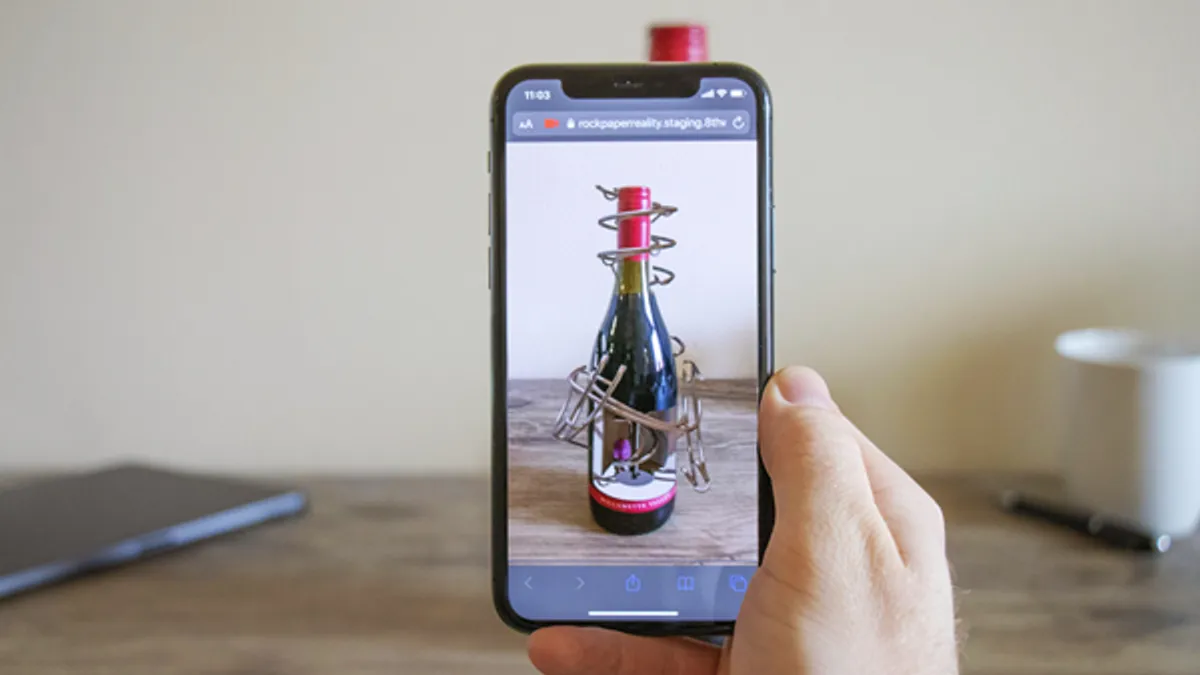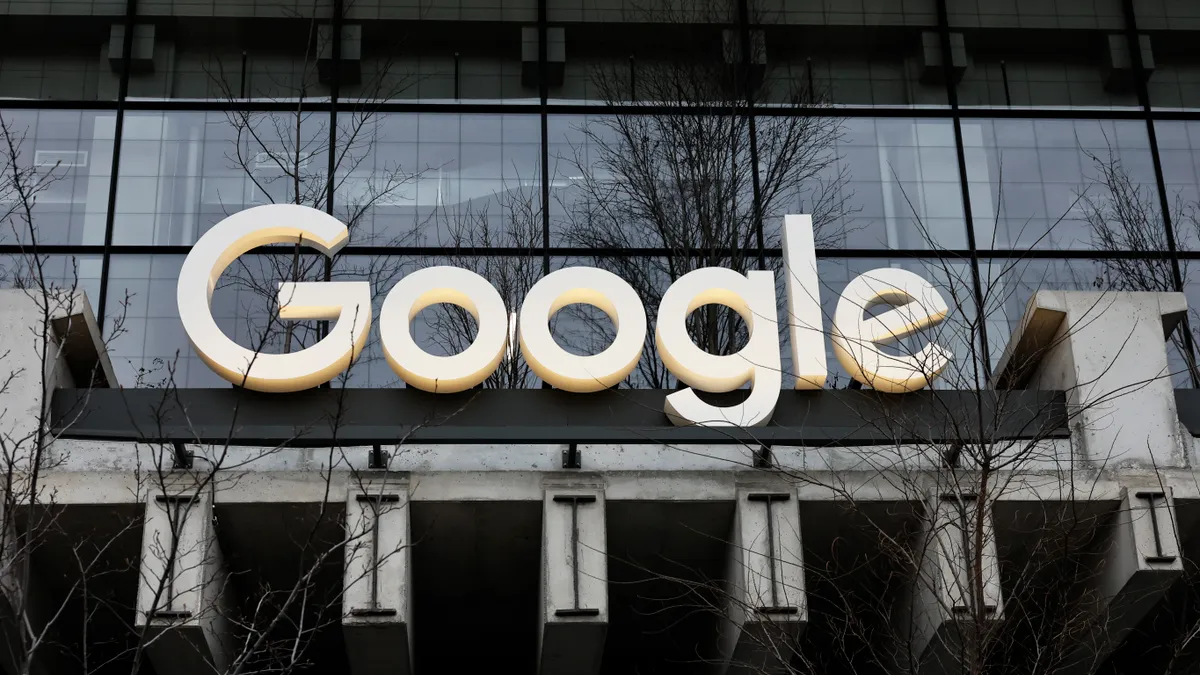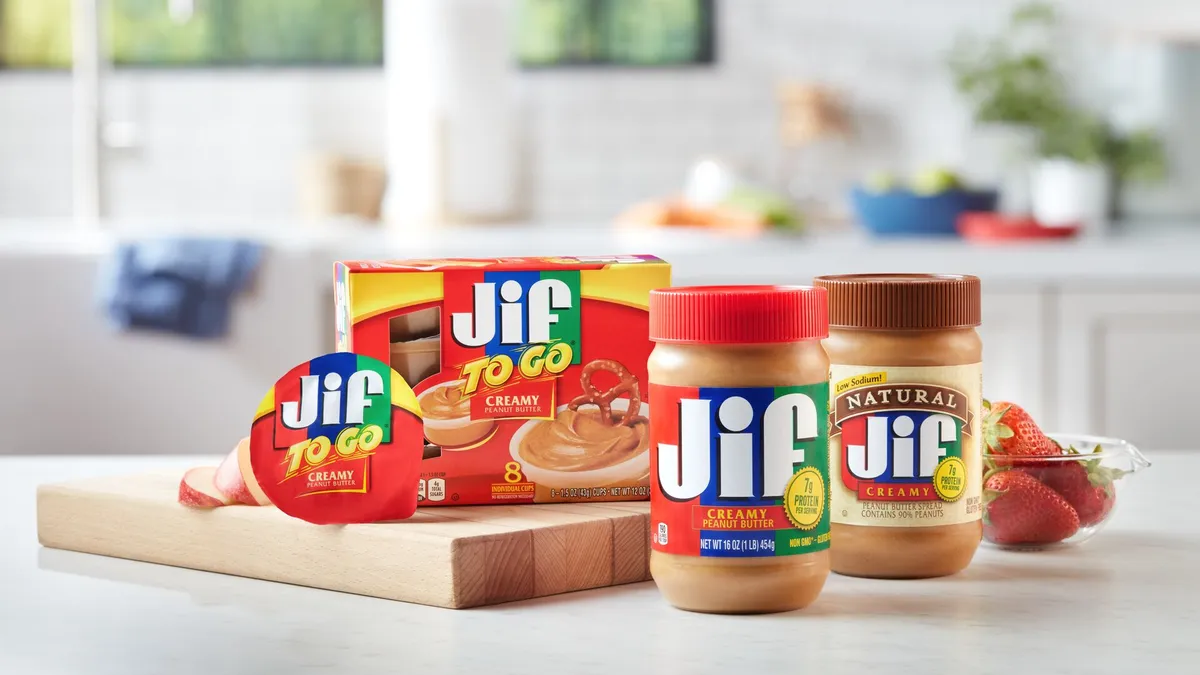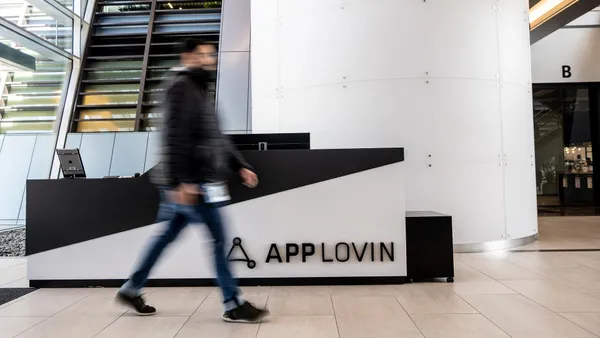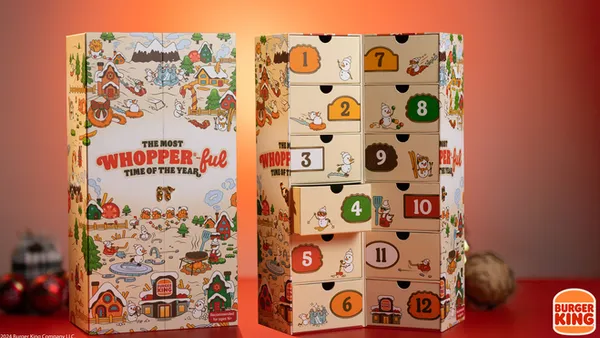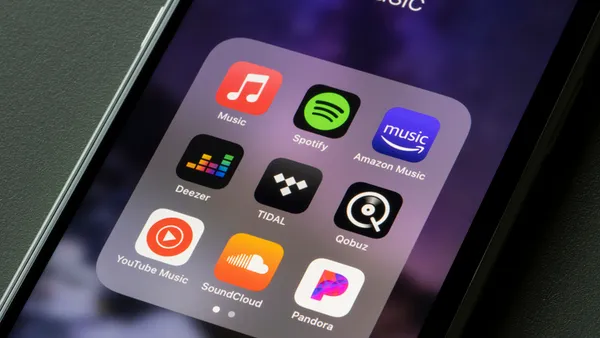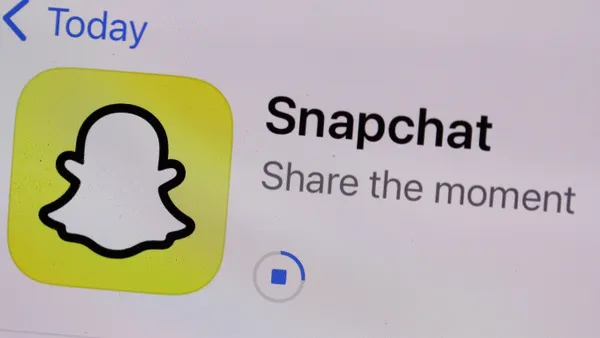Brief:
- Siduri Wines this week became the first brand to offer web-based augmented reality (AR) experiences that use a new technology to scan curved surfaces with a smartphone camera. AR platform 8th Wall developed the WebAR technology, and agency Rock Paper Reality created the content for the winery, according to an announcement.
- After scanning a Siduri wine label with a smartphone, viewers see an animated virtual track wrap around the bottle before a grape pops out of the lid and slides down the track into a trap door, as seen in a video demonstration. Because the AR content appears in a mobile web browser, smartphone users don't need to download a separate app.
- The activation showcases 8th Wall's "curved image targets" technology that interacts with cylindrical and conical objects instead of flat surfaces, making it more applicable to beverage packaging like bottles and cans. Siduri plans to offer more web-based AR experiences next year, the announcement notes.
Insight:
The collaboration among Siduri Wines, 8th Wall and Rock Paper Scissors showcases how brands can create web-based AR experiences for a broader variety of packaging, such as bottles and cans. By not requiring smartphone users to download a separate app to activate the experience, it's more accessible to mobile consumers with a variety of cellular data plans or Wi-Fi access. As 8th Wall demonstrates, consumer packaged goods (CPG) companies can use AR tech to transform their packaging into more immersive branded experiences that entertain and inform customers.
AR experiences can be especially useful for wine brands like Siduri, considering that consumers who walk into wine and liquor stores are often inundated with an overwhelming selection of labels, regions, varietals, vintages and prices. The choices can be intimidating for the uninitiated without the help of a trained salesperson or additional information. A web-based AR experience gives brands greater control over how that information is presented to consumers, helping to differentiate themselves from rivals.
While AR experiences may strike some consumers as gimmicky, they can be useful in the marketing of packaged goods including wine and liquor. In the past few years, several alcohol brands have developed mobile AR activations that tell a more complete brand story or to entertain customers. Brown-Forman last year released an app to bring Jack Daniel's bottles to life with AR content. The Jack Daniel's AR Experience app let smartphone users scan any of its bottles to unlock a series of pop-up dioramas telling the history of the Tennessee whiskey brand. Shackleton Whiskey, Jägermeister, Patrón and Diageo's Bulleit Bourbon also have developed campaigns to extend brand exposure with immersive experiences.
Retail showcasing had been considered one of the most promising applications for AR technology, though the pandemic has had a negative effect on brick-and-mortar stores and dampened their investments in AR activations, according to International Data Corp. (IDC). The researcher said AR still shows promise in the long term as shoppers who are avoiding stores may seek AR experiences that help to demonstrate products in a contactless setting.


